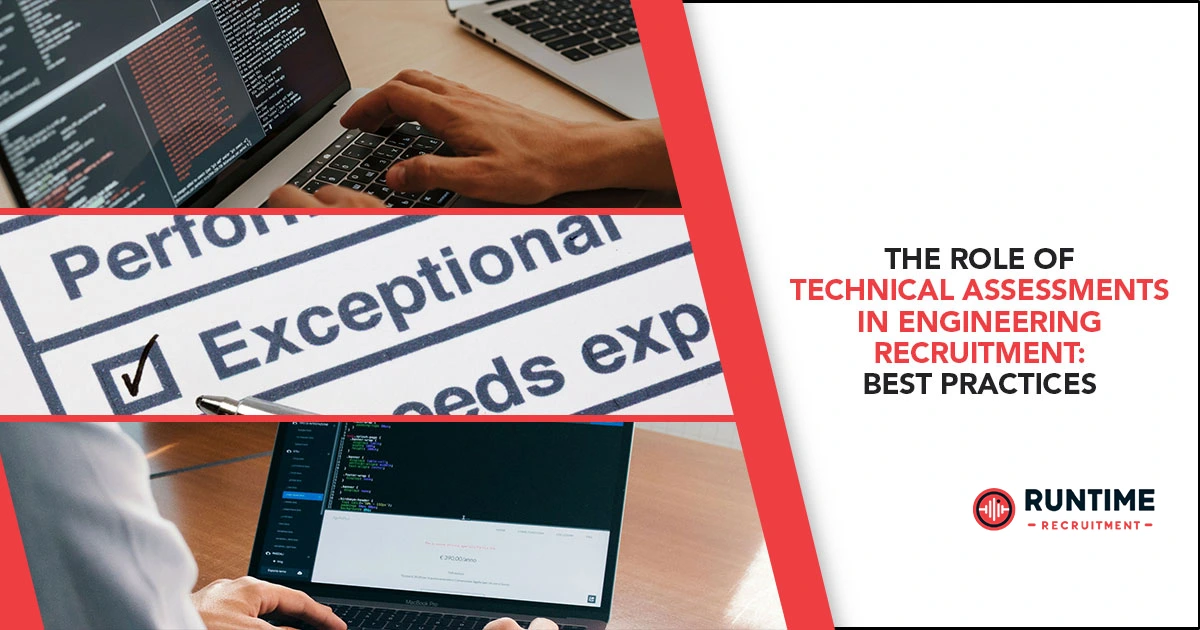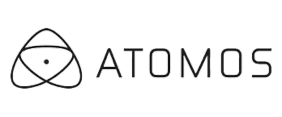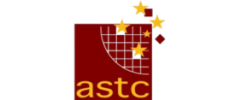Technical assessments play a critical role in modern engineering recruitment processes, serving as a powerful tool to evaluate candidates’ skills and competencies. Where traditional resumes often fall short in showcasing an individual’s true abilities, technical assessments provide a standardized method to gauge a candidate’s proficiency in relevant areas.
By incorporating best practices in technical assessments, such as creating realistic challenges, assessing problem-solving abilities, and ensuring fair evaluation criteria, companies can effectively identify top engineering talent. This not only streamlines the hiring process but also improves the overall quality of hires, leading to increased team productivity and innovation. In this era of rapid technological advancements, leveraging technical assessments in engineering recruitment is essential for companies looking to build high-performing teams that can drive business success.
Significance of Technical Assessments in Engineering Recruitment
Where engineering talent is in high demand, the significance of technical assessments in the recruitment process cannot be understated. Technical assessments play a crucial role in identifying the most suitable candidates for engineering roles and ensuring that they possess the necessary skills and knowledge to excel in their positions.
1. Ensuring Skills Alignment: Technical assessments allow recruiters to evaluate candidates based on their technical skills, knowledge, and competencies required for the specific engineering role. By assessing candidates through practical exercises, coding challenges, and problem-solving tasks, recruiters can gain valuable insights into their abilities and potential fit within the organization.
2. Validating Qualifications: Technical assessments help in validating the qualifications and experience claimed by candidates on their resumes. By testing candidates on relevant technical concepts and tools, recruiters can verify the authenticity of their skills and ensure that they meet the job requirements.
3. Predicting Job Performance: Technical assessments serve as a reliable predictor of a candidate’s job performance. By assessing how candidates approach technical challenges, solve problems, and apply their knowledge in real-world scenarios, recruiters can gauge their potential success in the role and their ability to contribute effectively to the organization.
4. Enhancing Hiring Decisions: Technical assessments provide objective data that can guide hiring decisions and minimize the risk of hiring the wrong candidate. By using standardized assessment methods and criteria, recruiters can compare candidates fairly and make informed choices based on their technical abilities and potential for growth.
Where innovation is key to success, technical assessments have become indispensable in engineering recruitment. Beyond the traditional resume screening and interviews, technical assessments offer a deeper dive into a candidate’s capabilities and potential.
1. Assessing Problem-Solving Skills: Technical assessments evaluate a candidate’s problem-solving abilities, critical thinking skills, and creativity in approaching complex engineering challenges. These assessments provide recruiters with a glimpse of how candidates handle real-world problems and their ability to innovate solutions.
2. Cultural Fit Evaluation: Technical assessments not only focus on technical competence but also help in assessing a candidate’s fit within the organization’s culture and values. Evaluating how candidates collaborate, communicate, and adapt to challenges during technical assessments can reveal their alignment with the company’s ethos.
3. Continuous Learning and Development: Through technical assessments, recruiters can identify candidates who show a willingness to learn, adapt, and grow in their technical expertise. Assessments that include progressive difficulty levels or scenarios that require learning on the spot can highlight candidates’ potential for continuous improvement.
Technical assessments are instrumental in ensuring that engineering teams are comprised of adept professionals who not only meet the technical requirements of the role but also align with the organization’s goals and values. By leveraging technical assessments effectively, companies can secure top engineering talent, foster innovation, and drive sustainable growth in today’s competitive market.
Understanding Best Practices for Technical Assessments
In the competitive world of recruitment, technical assessments have become an integral part of the hiring process for many companies. These assessments serve as a crucial tool for evaluating a candidate’s technical skills, problem-solving abilities, and overall suitability for a particular role. However, to ensure that technical assessments are effective and fair, it is essential for organizations to adhere to best practices. Let’s delve into some key considerations when it comes to designing and implementing technical assessments.
Designing Effective Technical Assessment Tests
One of the primary goals of a technical assessment is to accurately gauge a candidate’s proficiency in relevant technical areas. To achieve this, it is crucial to design assessment tests that are comprehensive, relevant, and aligned with the job requirements. Tests should cover a range of technical topics and may include coding challenges, problem-solving exercises, or theoretical questions. By creating well-rounded assessment tests, organizations can obtain a more accurate picture of a candidate’s capabilities.
Implementing Fair Evaluation Criteria
Fairness is a fundamental aspect of any assessment process. When designing technical assessments, it is essential to establish clear evaluation criteria that are objective and unbiased. Evaluation criteria should be based on the specific skills and competencies required for the role, ensuring that all candidates are assessed fairly and consistently. Additionally, organizations should strive to eliminate any potential biases that could impact the assessment results, such as the candidate’s background or personal characteristics.
Utilizing Technical Assessments to Gauge Problem-Solving Skills
Technical assessments not only measure a candidate’s technical knowledge but also their problem-solving abilities. Employers often use assessments to evaluate a candidate’s approach to complex problems, their analytical thinking skills, and their ability to troubleshoot technical issues. By incorporating problem-solving elements into technical assessments, organizations can gain valuable insights into a candidate’s thought process and problem-solving capabilities.
Ensuring Assessments Align with Job Requirements
Lastly, it is essential to ensure that technical assessments align closely with the specific requirements of the job role. Assessments should focus on assessing the skills and competencies that are directly relevant to the position, helping organizations identify candidates who possess the necessary qualifications to excel in the role. By aligning assessments with job requirements, organizations can make more informed hiring decisions and select candidates who are well-suited to the demands of the position.
By following best practices for technical assessments, organizations can enhance the effectiveness and fairness of their hiring processes. By designing comprehensive assessment tests, implementing fair evaluation criteria, leveraging assessments to gauge problem-solving skills, and aligning assessments with job requirements, organizations can make more informed hiring decisions and select candidates who are best suited to succeed in technical roles.
Benefits of Integrating Technical Assessments in Engineering Recruitment
Improving Candidate Quality and Job Fit
Technical assessments play a crucial role in enhancing the quality of candidates and ensuring a better job fit. By evaluating candidates’ actual skills and knowledge, companies can effectively determine if they possess the necessary technical expertise for the role. This leads to hiring decisions based on concrete evidence of competency rather than just the information provided in resumes.
Reducing Hiring Bias Through Objective Evaluation
A key benefit of incorporating technical assessments in the recruitment process is the reduction of hiring bias. By relying on objective evaluation criteria rather than subjective factors like gender, ethnicity, or educational background, companies can create a fairer and more inclusive hiring environment. This shift towards merit-based assessments helps in fostering diversity and equality within the workforce.
Enhancing the Overall Recruitment Process Efficiency
The integration of technical assessments streamlines the recruitment process by providing valuable insights into candidates’ abilities early on. This efficiency not only saves time for both recruiters and candidates but also ensures that only the most qualified individuals progress further in the hiring process. By identifying top talent through assessments, companies can expedite decision-making and secure the best candidates for the job.
Improving Candidate Experience
In addition to benefiting the hiring company, technical assessments also enhance the candidate experience. These assessments offer candidates a chance to showcase their skills in a practical setting, giving them a more comprehensive opportunity to demonstrate their capabilities beyond what a traditional interview may reveal. This interactive process can lead to a more engaging experience for candidates, ultimately attracting top talent to the organization.
Enhancing Predictive Hiring
Technical assessments provide valuable data that can be used for predictive hiring purposes. By analyzing candidates’ performance in assessments, recruiters can make more informed predictions about their future success within the organization. This data-driven approach to hiring not only improves the quality of hires but also contributes to long-term organizational success.
Supporting Skill Development
Apart from aiding in recruitment, technical assessments can also support ongoing skill development within the workforce. By identifying strengths and areas for improvement through assessments, companies can tailor training and development programs to enhance employees’ skills, ultimately leading to a more competent and adaptable workforce.
Integrating technical assessments in engineering recruitment processes offers a multitude of benefits ranging from improved candidate quality and reduced bias to enhanced efficiency and predictive hiring capabilities. By leveraging the power of objective evaluation through assessments, companies can make smarter hiring decisions, foster diversity, and drive organizational growth.
Overcoming Challenges in Technical Assessments
Addressing Potential Challenges in Implementing Technical Assessments
Technical assessments are essential in evaluating candidates for technical roles, yet organizations often face significant hurdles in implementing these assessments effectively. Overcoming these challenges is crucial for ensuring a successful assessment process that accurately identifies top talent. Let’s explore some common obstacles and practical solutions to address them:.
Defining Clear Assessment Objectives
One of the primary challenges organizations encounter is the lack of clear assessment objectives. Without well-defined goals, assessments may fail to assess the necessary skills and competencies for the role. To tackle this issue, organizations must collaborate closely with hiring managers and subject matter experts to establish precise assessment objectives that align with the role’s requirements.
Creating Relevant and Realistic Assessments
Developing assessments that mirror real-world scenarios accurately can be a daunting task. Organizations need to ensure that assessment tasks closely reflect the actual responsibilities of the position. Engaging current employees who are performing similar roles can provide valuable insights to design relevant and realistic assessments that truly evaluate a candidate’s capabilities.
Managing Time and Resources Efficiently
Efficient time and resource management is another significant challenge in technical assessments. Balancing the need for a thorough assessment with time constraints is vital. Leveraging technological solutions such as automated grading systems can streamline the evaluation process, enhance accuracy, and optimize the utilization of resources effectively.
Providing Solutions to Overcome Challenges
To navigate these challenges successfully, organizations can employ various strategies:.
1. Collaboration with Subject Matter Experts: Involving subject matter experts in the assessment design process ensures that assessments are aligned with industry standards and job requirements.
2. Utilizing Technological Advancements: Implementing assessment platforms and tools can boost the efficiency and accuracy of evaluations. Automated systems offer immediate feedback to candidates, enhancing the overall assessment experience.
3. Feedback Mechanisms and Continuous Improvement: Soliciting feedback from both candidates and evaluators is essential for refining the assessment process. Continuous iteration based on feedback fosters improvement, ensuring that the assessment remains relevant and effective.
By actively addressing these challenges and embracing innovative solutions, organizations can elevate their technical assessment processes, identify top talent efficiently, and enhance their overall recruitment strategy.
The Impact of Technical Assessments in Tech Recruitment
In the competitive landscape of tech recruitment, companies are constantly evolving their strategies to identify top talent. One notable approach is exemplified by RunTime, a company that places a significant emphasis on technical assessments in their engineering recruitment process. By combining technical interviews, coding challenges, and practical tasks, RunTime aims to thoroughly evaluate candidates’ skills and knowledge.
Unique Approach of RunTime
What sets RunTime apart is its utilization of a unique resource – a team of engineers turned recruiters. This team possesses a deep understanding of the technical nuances of job specifications, enabling them to craft assessments that effectively gauge candidates’ capabilities. These assessments are thoughtfully customized for each client, ensuring that they not only assess technical proficiency but also align with the company’s values and projects.
Tailored Assessments for Success
The tailored approach adopted by RunTime serves a dual purpose. Firstly, it guarantees that candidates possess the essential technical competencies required for the role. Secondly, it ensures a cultural and project fit, crucial for long-term success within the company. By prioritizing technical assessments, RunTime maximizes the chances of presenting the most qualified candidates to their clients, ultimately leading to successful placements in engineering positions.
Driving Ongoing Development
Moreover, RunTime’s approach to technical assessments extends beyond the recruitment phase. The data collected from these assessments provides valuable insights that can be utilized for ongoing skill development within the company. By understanding the strengths and areas for improvement of their employees, RunTime can tailor training programs and professional development opportunities to enhance their team’s overall proficiency.
Fostering a Culture of Excellence
Additionally, the emphasis on technical assessments reflects RunTime’s commitment to fostering a culture of excellence and continuous improvement. Employees are encouraged to engage in skill-building activities and knowledge-sharing initiatives, creating a dynamic environment that nurtures innovation and expertise.
Ensuring Success: Tips for Effective Technical Assessments
Technical assessments are a crucial component of the hiring process in the tech industry. They give employers insights into a candidate’s technical skills, problem-solving abilities, and overall fit for a role. To ensure success and make the most out of these assessments, consider the following guidelines:.
1. Define Clear Objectives: Clearly outline the purpose of the technical assessment and what you aim to evaluate in candidates.
2. Choose the Right Format: Select an assessment format that aligns with the role requirements and provides a realistic evaluation of a candidate’s skills.
3. Provide Adequate Preparation: Give candidates enough information about the assessment format, topics to be covered, and any resources they can use.
4. Set Realistic Timeframes: Ensure the assessment can be completed within a reasonable time frame to prevent unnecessary stress or rushed work.
5. Offer Constructive Feedback: Provide detailed feedback to candidates after the assessment to help them understand their strengths and areas for improvement.
Technical assessments serve as a valuable tool for companies seeking to hire skilled professionals in the ever-evolving tech industry. These assessments not only help in gauging a candidate’s technical expertise but also provide insights into their problem-solving approach, adaptability, and collaboration skills. To truly maximize the impact of technical assessments, here are some additional tips to consider:
1. Utilize Realistic Scenarios: Incorporate real-world scenarios and challenges relevant to the job role to assess how candidates apply their technical knowledge in practical situations.
2. Embrace Diversity: Ensure the assessment process is inclusive and considers diverse backgrounds and perspectives, leading to a more comprehensive evaluation of candidates’ capabilities.
3. Engage with Industry Experts: Collaborate with industry professionals or subject matter experts to design assessment tasks that reflect current trends and best practices in the tech field.
4. Continuous Improvement: Regularly review and update your assessment criteria to align with the evolving demands of the industry and continuously enhance the evaluation process.
By incorporating these strategies into your technical assessment process, you can identify top talent efficiently and create a positive candidate experience that reflects well on your company’s commitment to excellence and fairness in hiring practices.
Future Trends in Technical Assessments for Engineering Recruitment
In the ever-evolving landscape of engineering recruitment, staying abreast of the latest trends in technical assessments is crucial for companies looking to attract top talent. Let’s delve deeper into the upcoming advancements and innovations shaping the future of technical assessments.
Virtual Reality Simulations: A Glimpse into the Future
Virtual reality simulations have emerged as a cutting-edge tool for evaluating engineering candidates. By immersing candidates in realistic virtual environments, companies can assess not only their problem-solving skills but also their ability to think critically and adapt to complex scenarios. This immersive experience provides recruiters with valuable insights into a candidate’s cognitive processes and decision-making abilities.
Harnessing the Power of Artificial Intelligence
Artificial intelligence (AI) is revolutionizing the way technical assessments are conducted. AI algorithms can now analyze a candidate’s responses to technical questions with remarkable precision, offering recruiters a comprehensive understanding of the candidate’s skills and knowledge. By automating the screening process, AI-driven assessments not only save time but also enhance the accuracy of candidate evaluations, ensuring that only the most qualified individuals progress to the next stage of the recruitment process.
Engaging Through Gamification
Gamified assessments are redefining the assessment experience for engineering candidates. By incorporating game elements into technical evaluations, recruiters can create engaging and interactive assessment environments that accurately reflect the challenges engineers face in their day-to-day roles. Candidates can showcase their problem-solving abilities in a dynamic and stimulating setting, allowing recruiters to assess their skills more holistically.
Ensuring Integrity with Remote Proctoring
The shift towards remote work has necessitated the adoption of remote proctoring solutions for technical assessments. These tools utilize video and audio feeds to monitor candidates during assessments, ensuring the integrity of the evaluation process. By mitigating the risk of cheating and unauthorized assistance, remote proctoring solutions provide a secure and transparent assessment environment for both candidates and recruiters.
The Rise of Skill-Based Assessments
Skill-based assessments are gaining prominence as an effective alternative to traditional exams. By evaluating candidates based on their practical abilities and job-specific skills, companies can identify individuals who possess the hands-on experience necessary to excel in engineering roles. Skill-based assessments offer a more accurate depiction of a candidate’s capabilities, enabling recruiters to make informed hiring decisions based on performance rather than theoretical knowledge.
Embrace the Future of Engineering Recruitment To stay ahead of the curve in engineering recruitment, organizations must embrace these future trends in technical assessments. By leveraging virtual reality simulations, artificial intelligence, gamification, remote proctoring, and skill-based assessments, companies can create a robust and innovative recruitment process that attracts top engineering talent. Embrace the future of technical assessments and unlock the full potential of your engineering recruitment strategy.
Conclusion
Incorporating technical assessments into engineering recruitment processes is essential for identifying candidates with the right skills and expertise. By utilizing best practices such as aligning assessments with job requirements, providing clear instructions, and offering feedback to candidates, companies can streamline their hiring process and ensure they are selecting the most qualified individuals for the job. Ultimately, embracing technical assessments as a key component of engineering recruitment can lead to better hiring decisions, stronger teams, and improved overall performance within organizations.









